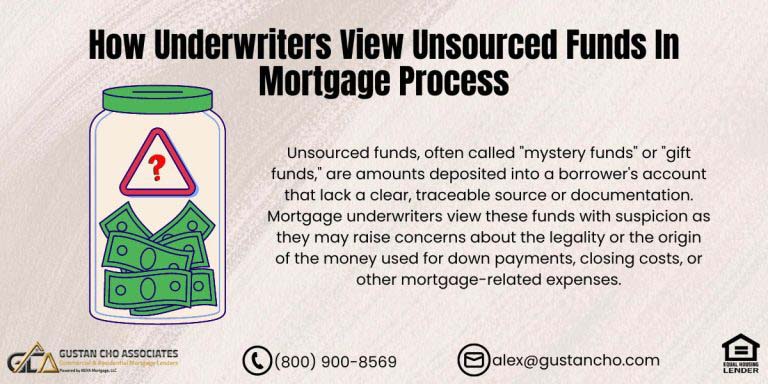Credit During the Mortgage Process: What Every Homebuyer Needs to Know
When looking for a mortgage, your credit plays a huge role in the whole process. It’s not just about that three-digit number; it’s your entire financial history. Lenders check your credit report and credit score to determine your eligibility, the interest rate they will provide, and the total cost of the loan.
At Gustan Cho Associates, we totally get that dealing with credit can be pretty stressful. Maybe your score isn’t the best, you’ve been through a bankruptcy, or you can’t figure out what lenders really care about. The good news? We focus on helping people who might feel turned away by other lenders. There are still options for you, even if your credit’s not perfect.
In this guide, we’ll walk you through everything you need to know about credit during the mortgage process—from the minimum credit score to how your credit report affects your chances of getting approved, along with some tips on boosting your approval odds.
Confused About Your Credit Score and Credit Report? We Can Help You Understand the Difference!
Contact us today to learn how they impact your mortgage and what steps you can take to improve them.
Why Credit During the Mortgage Process Matters
Your credit tells lenders one big thing: how likely you are to pay back a loan on time. A strong credit profile can mean:
- Lower interest rates: putting money back in your pocket throughout the life of your loan.
- Easier approvals: more loan programs to choose from.
- Flexibility on debt-to-income (DTI) ratios: higher DTI allowances if your credit is strong.
On the flip side, damaged credit doesn’t mean you can’t buy a home—it just means you need the right lender who understands your options. That’s where we come in.
Credit Score vs. Credit Report: What’s the Difference?
When you’re in the mortgage process, it’s good to get a handle on two things: credit scores and credit reports. Knowing the difference between them can help you manage your finances more effectively. A credit score is a three-digit number between 300 and 850 that shows how risky you are to lend money to. Most lenders look at FICO® scores, but some might also use VantageScore.
On the other hand, a credit report gives a detailed look at your financial history. It includes your account histories, balances, payment records, and any inquiries made about your credit. This report comes from three major credit bureaus: Experian, Equifax, and TransUnion. Together, your credit score and report help lenders assess your creditworthiness.
Think of your credit score as your “grade” that reflects your overall credit risk. Your credit report acts as the “report card” that shows how that grade was determined. Lenders check out your credit score and credit report to see if you’re a trustworthy borrower. So, it’s super important to know what they are and keep an eye on them.
Minimum Credit Score Requirements in 2025
Credit requirements vary depending on the type of mortgage:
- FHA Loans: Minimum 580 FICO for 3.5% down. Scores between 500 and 579 may qualify with 10% down.
- VA Loans: No set minimum score required by the VA. Approval depends on the automated underwriting system (AUS). Many lenders impose overlays, but Gustan Cho Associates has no overlays.
- USDA Loans: Typically require 580–620 FICO, depending on the lender.
- Conventional Loans (Fannie Mae & Freddie Mac): Minimum 620 FICO required. Higher scores unlock better rates and fewer restrictions.
Pro Tip: Even if you fall below these ranges, don’t give up. Our team at Gustan Cho Associates has programs and investors who approve borrowers with scores that other lenders won’t touch.
Lender Overlays and Why They Matter
Government agencies (HUD, VA, USDA, Fannie Mae, Freddie Mac) set minimum guidelines. However, many banks and lenders add their own stricter rules, known as lender overlays.
For example, FHA allows 580 scores with 3.5% down. But many banks require 640 or higher. That’s an overlay.
At Gustan Cho Associates, we have no lender overlays. If the agency allows it, we follow it. That’s why so many borrowers who were denied elsewhere get approved with us.
Wondering About Your Credit Score vs. Credit Report? Let Us Explain How They Affect Your Loan!
Reach out now to understand how each affects your ability to qualify and get the best rates.
How Credit Affects Debt-to-Income Ratios
Your credit doesn’t just affect your rate—it also impacts your DTI limits:
- FHA borrowers with scores below 620 may be capped at 43% DTI.
- With scores above 620, FHA allows up to 46.9% front-end / 56.9% back-end DTI.
- Conventional loans are usually stricter, capping DTIs around 45%–50% depending on AUS findings.
This is why credit during the mortgage process is so critical—it can literally change how much home you can afford.
Common Credit Dispute Issues During the Mortgage Process
Many borrowers don’t realize disputes can cause problems:
Medical Disputes
Medical disputes typically do not negatively impact the mortgage underwriting process. Lenders often overlook these disputes, as they understand that medical debt can arise from unavoidable circumstances.
Non-Medical Disputes Under $1,000
Disputes related to non-medical debts under $1,000 are generally manageable in the mortgage process. Lenders might not require these minor disputes to be resolved before approval, allowing for smoother progress.
Non-Medical Disputes Over $1,000
When a borrower has non-medical disputes exceeding $1,000, these can significantly complicate the mortgage approval process. To move forward, such disputes often need to be removed, or the application may be subject to manual underwriting, which can take more time.
Charge-Offs with Active Disputes
If charge-offs are currently under dispute, lenders typically will not accept them during the mortgage process. This is because active disputes can raise questions about the accuracy of the debt, affecting the overall assessment of the borrower’s financial situation.
Pro Tip: Don’t start or add disputes while in the mortgage process. Work with your lender first to avoid delays.
How to Improve Credit During the Mortgage Process
If your credit needs a boost, here are practical steps:
- Check your report for errors: Dispute mistakes early (before applying).
- Pay bills on time: Even one 30-day late payment can hurt.
- Lower credit card balances: Aim for less than 30% utilization.
- Use secured credit cards: Three cards with $500 limits can raise scores quickly.
- Avoid new inquiries: Wait until after closing for new loans or credit cards.
At Gustan Cho Associates, we guide borrowers through rebuilding credit during the mortgage process so they can be approved.
Final Thoughts: Your Credit Doesn’t Have to Hold You Back
Your credit during the mortgage process matters—but it doesn’t have to be perfect. At Gustan Cho Associates, we help borrowers denied elsewhere because of their credit every day. We understand agency guidelines, we know how to guide you through disputes and rebuilding, and we’ll work with you until you qualify.
Call us at 800-900-8569 or email gcho@gustancho.com. We’re available 7 days a week, evenings, weekends, and holidays.
Don’t let credit hold you back from owning a home. With the right lender, you can still get approved—even if you’ve got some bumps in your credit history.
Struggling to Understand Credit Scores vs. Credit Reports? We’re Here to Help!
Reach out now to learn how both factors influence your mortgage options.
Frequently Asked Questions About Credit During the Mortgage Process:
Q: Why is Credit During the Mortgage Process so Important?
A: Credit during the mortgage process shows lenders that you can be trusted to pay back your loan. A good score can help you get approved and lower your rate.
Q: What Credit Score do I Need to Buy a House?
A: The credit score you need depends on the loan. FHA loans work with 580 and higher, VA has no set score, USDA usually needs 580–620, and conventional loans require at least 620.
Q: Can I Still Qualify if I have Bad Credit During the Mortgage Process?
A: Yes. Even with low scores, you may still qualify for FHA, VA, or non-QM loans. Gustan Cho Associates helps many borrowers with less-than-perfect credit.
Q: Will Lenders Check My Credit More Than Once?
A: Yes. Lenders check your credit during the mortgage process at the start and again before closing. That’s why it’s important not to miss payments or open new credit.
Q: What Happens if My Credit Score Drops Before Closing?
A: If your score drops during the mortgage process, it could affect your loan approval or interest rate. Always protect your credit until the loan closes.
Q: Can I dispute items on my credit report while getting a mortgage?
Not usually. Most credit disputes must be removed before closing. Medical disputes are often okay, but check with your lender first.
Q: How Can I Improve My Credit During the Mortgage Process?
A: Pay bills on time, lower your credit card balances, avoid new loans, and use secured credit cards to rebuild your score.
Q: Does Credit During the Mortgage Process Affect How Much House I Can Buy?
A: Yes. Your credit can affect your debt-to-income limits. Better credit may allow you to qualify for a bigger loan.
Q: Do Late Payments Always Stop Me from Buying a Home?
A: Not always, but lenders take late payments in the last 12 months seriously. The cleaner your payment history, the better.
Q: Who Can Help Me if I have Credit Problems While Trying to Buy a House?
A: Gustan Cho Associates can guide you through the credit process during the mortgage process. We have no lender overlays and can often approve loans that other lenders deny.
This article about “Credit During the Mortgage Process Made Simple” was updated on August 29th, 2025.










